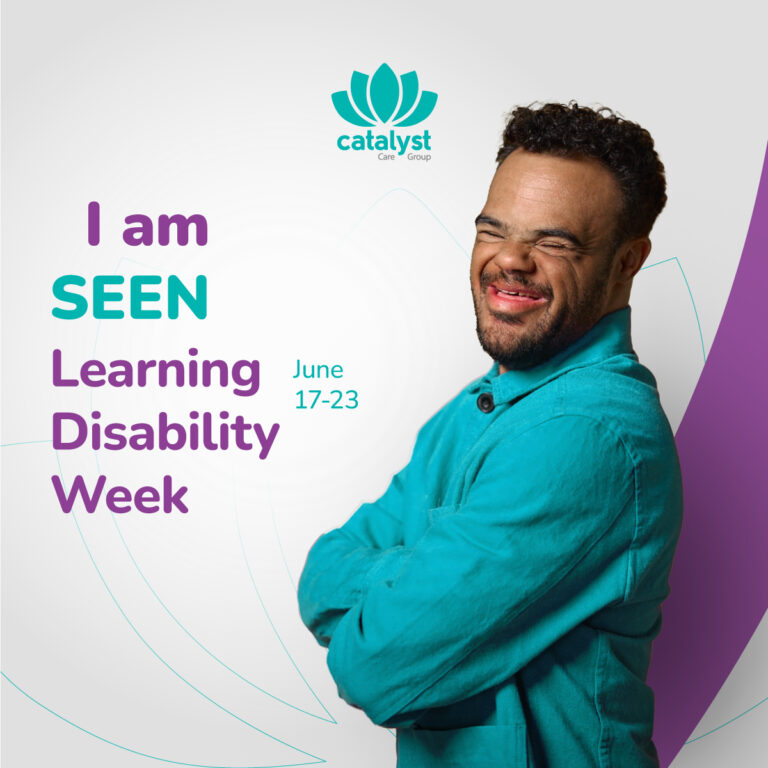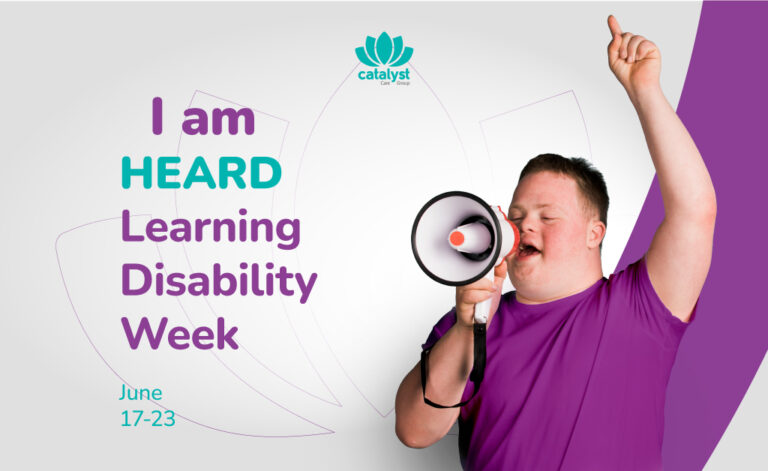Key Takeaways
- Supported living services focus on improving people’s quality of life by encouraging them to achieve personal goals and fostering active engagement in the community.
- Supported living service provides multi-faceted support to people with learning disabilities, autism, and mental health needs.
- The main goal of supported living accommodation is to foster independence and personal growth for people with learning disabilities, autism and mental health challenges.
Supported living for learning disabilities involves building the right support and community care services to make a home-like environment accessible for each individual with complex care needs. Learning disabilities can affect people in a number of different ways, but having a learning disability doesn’t mean living without choice. We believe that children, young people and adults with a learning disability and autism have the right to the same opportunities as anyone else to live fulfilling and rewarding lives and to be treated with dignity and respect.
What Is Supported Living for People with Learning Disabilities?
Supported living services provide person-centred support and holistic care for people with learning disabilities or multiple learning disabilities who might need additional assistance in daily life activities. With supported living services, people with learning disabilities get access to personal care and support tailored to meet their unique complex needs while retaining their privacy in their own home.
Supported living services strive to improve a person’s quality of life by encouraging them to achieve personal goals and fostering positive engagement in the community as much as possible.
People in supported living accommodation have their own tenancies and are responsible for taking care of their cost of living, which is often assisted with various benefits and grants. Ensuring consistent care is essential, but it’s relieving to know that even if support workers change, people can remain in the comfort of their own homes. Supported living offers people with learning disabilities more independence than 24/7 residential care, helping people feel empowered while still supported.
Supported Living Services for People with Autism
Supported living services for autistic people offer tailored support to enhance quality of life and independence. Through personalised care plans and compassionate assistance, these services empower individuals to thrive in their own homes and communities.
From daily living skills to social integration and emotional well-being, the focus is on holistic support that honours each person’s unique strengths and challenges. By fostering autonomy and providing a supportive environment, supported living services aim to promote self-determination and a fulfilling life for individuals with autism.
There are various benefits of supported living services for autistic people:
- Personal tenancy or ownership
- Companionship
- Enhanced independence
- Choosing the time, place and type of supported living services
- Living alone or within a shared home
- Access to personal budgets, payments and support funds
With supported living services, every step is attentively planned, entailing meaningful practices in every action. Our support workers are well-trained and experienced professionals, aiming to assist children and adults with autism in unlocking new potentials and improving communication skills.
Benefits of Supported Living for Individuals with Learning Disabilities
Supported living service provides multi-faceted support to people with learning disabilities, autism, and mental health needs. This service provision is designed to meet a person’s unique and individual needs. The level of support varies from person to person, ranging from several hours a week to 24-7 round-the-clock care.
One of the advantages of assisted living is that it offers comprehensive care. Support workers are educated to help people with complex care needs enhance their social connections, acquire new skills, and improve their communication abilities.
Supported living services can assist with the following activities:
- Personal care
- Household chores
- Money management
- Developing new skills and talents
- Social interactions
- Active engagement in the community
- Independent living
The main goal of supported living accommodation is to promote independence and help people live safely and comfortably in their own homes and the community.

Empowering Individuals with Learning Disabilities Through Supported Living
Supported living homes bring a sense of meaning and peace of mind. Empowering individuals with learning disabilities through supported living is a heartfelt commitment to fostering independence, dignity, and inclusivity. We believe that every person with a learning disability or complex care needs should be recognised as individuals with unique strengths and potential. The aim is to provide a supportive environment, fostering personal growth and turning challenges into opportunities for the person supported.
Through tailored support plans, we strive to create an environment that nurtures self-confidence, encourages skill development, and promotes a sense of belonging. Our dedicated team is driven by compassion, understanding, and a genuine belief in the inherent worth of each individual. By breaking down societal barriers and fostering a sense of community, we try to create a world where everyone can flourish and lead fulfilling lives. We believe that supported living services should be a shared journey towards empowerment, guided by the principles of respect, kindness, and unwavering support.
Supported living services have a life-changing impact on the lives of adults with learning disabilities. These services provide a framework that promotes:
- Supportive strategies for learning new skills
- Building self-esteem and confidence
- Strengths-based approach
- Improved mental health and physical well-being
- Improved problem-solving skills
- Healthy lifestyles
Independent living services support people with learning disabilities and complex care needs to enjoy all their human rights, making them active citizens who can impact the community.
Promoting Independence and Personal Growth in Supported Living for People with Learning Disabilities
The main goal of supported living accommodation is to foster independence and personal growth for people with learning disabilities, autism and mental health challenges.
Through tailored support plans and a nurturing environment, supported living services empower individuals to thrive on their own terms. From mastering daily living skills to pursuing personal goals, every step is celebrated and encouraged. The focus is on fostering autonomy, confidence, and a sense of accomplishment, creating a pathway towards a fulfilling and self-directed life.
What We Do and the Importance of Tailored Care in Supported Living Services
Catalyst Care Group’s house of brands helps you to choose and navigate your life within supported living accommodation. Our approach aims to support local care and promote the well-being of the people we serve with the goal of preventing the need for an acute hospital stay or unnecessary hospital admissions. We believe receiving care at home should always be the first port of call when meeting the emerging needs of people and families with complex care needs.
With one purpose in mind – transforming care for the better, we aim to reduce the rates of delayed discharges and support people in their own homes. We are genuinely committed to making humanised care accessible to everyone.
Catalyst Care Group brands strive to remove all barriers imposed on individuals with learning disabilities, physical disabilities, complex care needs, or mental health challenges. Our committed support workers take a comprehensive approach to supporting people with complex needs and prioritise advancing human rights for all marginalised individuals.
FAQ
Who is eligible for supported living services?
Eligibility for supported living services typically depends on factors such as the individual’s level of disability, their ability to live safely with appropriate support, and any funding or eligibility criteria set by relevant authorities or agencies.
How is the support tailored to individual needs?
Support in supported living is personalized through a person-centred approach, which involves assessing the individual’s strengths, preferences, and goals. Support plans are then developed collaboratively to address specific needs and promote independence and well-being.
How are privacy and independence maintained in supported living?
Privacy and independence are prioritised in supported living arrangements. Support is provided in a way that respects the individual’s autonomy and dignity, with a focus on empowering them to make choices and decisions about their own lives.
How are emergencies and crises handled in supported living?
Protocols and procedures are in place to respond to emergencies and crises in supported living settings. This may include access to on-call support, crisis intervention plans, and coordination with emergency services or healthcare providers as needed.
How long can someone stay in supported living?
The duration of stay in supported living can vary depending on individual circumstances and goals. Some individuals may use supported living as a long-term solution, while others may transition to more independent living arrangements over time.













